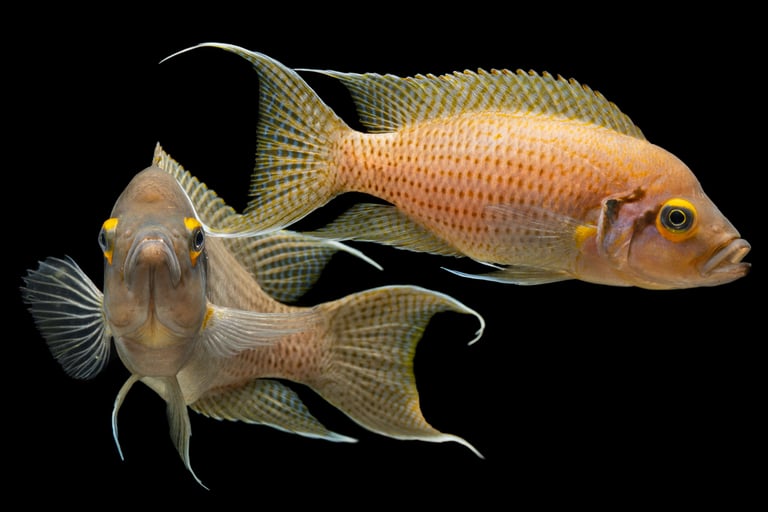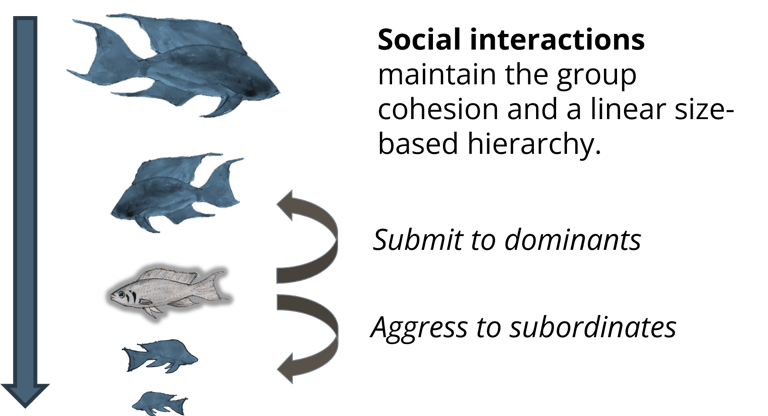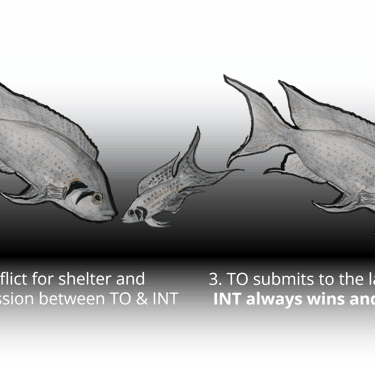

Social competence - what are we measuring?
Across diverse groups, individuals face recurring social challenges, such as mating, cooperation, or territorial defence, where success depends on the ability to respond appropriately to social partners. Social competence is defined as the ability to optimise individual behaviour in response to the social environment. It is important for social animals throughout lifetime and has fitness consequences. However, social competence is multidimensional, and is challenging to study.
The cooperatively breeding cichlids, Neolamprologus pulcher, is a great model system to study social competence. In this system, groups have a dominant breeding pair and several helpers, where the helpers form a size-based dominance hierarchy. Individuals in the hierarchy need to submit to dominants to be accepted in the group and aggress to subordinates to defend their rank.
Cooperatively breeding cichlid, Neolamprologus pulcher. Credits: Jaime Culebras




Social hierarchy test
Advancing the study of social competence requires a systematic framework or “work program”. We need systems in which we can (1) pre-specify objective success criteria, (2) use experimental manipulations that generate deterministic and thus predictable outcomes, and (3) derive a priori predictions for competent behaviours based on these outcomes. This approach prevents circularity—where competence is inferred only after observing successful behaviour.
In N.pulcher, we can manipulate the sizes of interacting individuals and let them compete over a resource, such as shelter, such that the larger individual always wins. This way, we can predict the competent behaviours apriori. The smaller territory owner (TO) should give up territoriality and submit to the larger intruder (INT) to remain accepted in the territory; INTs should quickly take over the territory from TOs. We use this system and subject individuals to opposite roles repeatedly to measure social competence and ask questions like (1) Are socially competent individuals competent in all social situations? (2) Does the personality of individuals limit the ability to adapt to varying social environments flexibly?